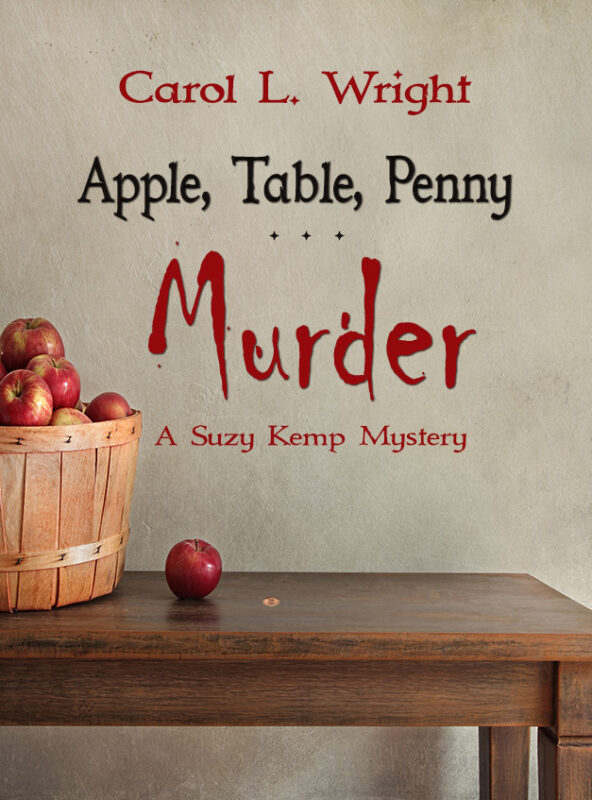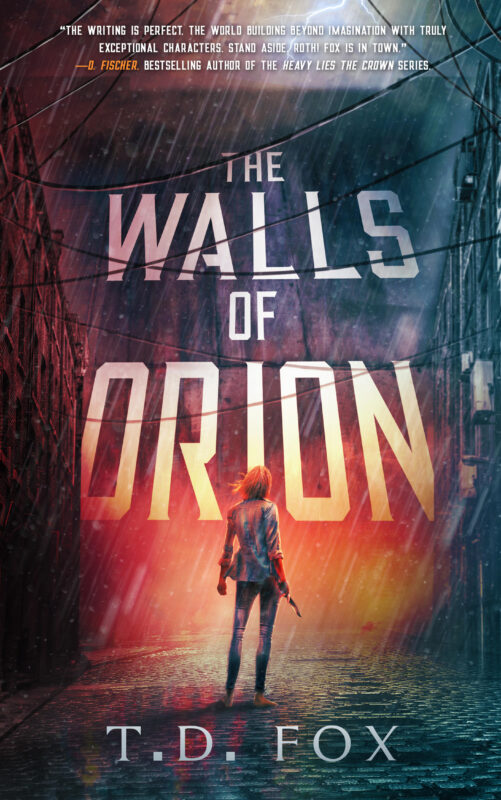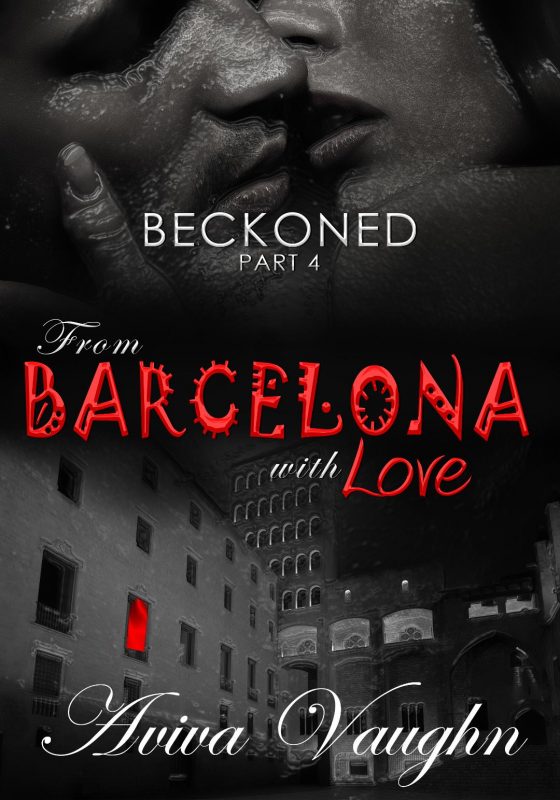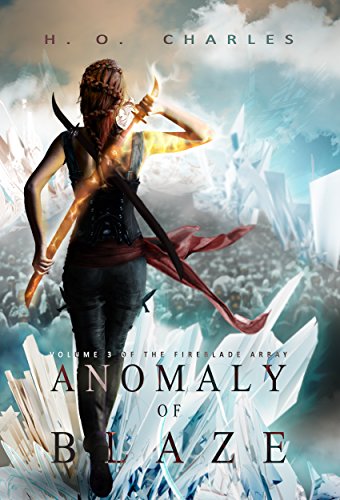New Normal
May 6, 2020 by Linda O. Johnston in category Pets, Romance & Lots of Suspense by Linda O. Johnston tagged as coronavirus, new normal, writing
Last month I posted here about the Corona virus and how it was affecting my life and writing. Well, guess what, everyone? Reading that post again now, I realize that what I described has become my new normal.
Oh, sure, I used to stay at home a lot and write. Not much different about that now. But I still don’t go out to my exercise classes, which remains fine with my dogs since they get more walks.
I plan in advance when I dare to go shopping for essentials like food, and then I plan the times to arrive at those stores to be when any lines will hopefully be short and I’ll be able to breathe at least somewhat through my mask.
Otherwise, I pretty much stay at home. And write. And wonder if I’ll ever really want to incorporate much of this into a novel someday. It is novel, of course. New, but extending. I never dreamed what’s going on today ever would. If I’d written about it in the past, people might have enjoyed the fiction—or not—but that’s what it would have been. And tomorrow? Will I include any or all of this in my writing? I’m still not sure.
Meanwhile, I hope to attend the meeting of the Orange County Chapter of Romance Writers of America this weekend—the way I’ve been attending such meetings for the past couple of months now, online, on Zoom. Not that non-techie me has completely figured out how to use Zoom. But I know enough to at least watch and listen.
And now? Well, I’m working on the final edits of the manuscript I was writing last month. I hope to send it to my editor soon. It’s another Harlequin Romantic Suspense book in one of my mini-series, and I’ve been having fun with it.
What else? Well, my husband and I used to go out at least once a week to see a movie in a theater. Now, we watch all movies or shows on TV. And my dogs have always been good about communicating with me, so having me around even more to give orders to seems to suit them just fine.
Okay, back to work now. Let’s see what I have to say here next month!
~Linda
2 0 Read moreWhat Are You Doing During The Quarantine?
May 5, 2020 by Tracy Reed in category Pink Pad by Tracy Reed, Writing tagged as quarantine, Tracy Reed, writingWhat Are You Doing During the Quarantine?
Happy May and happy Mother’s Day to all the mothers.
I have to be one of the few people not too upset about being on quarantine. I work from home so this isn’t that different from my everyday routine, except I can’t go to the gym, the salon or church. I sympathize and pray for everyone who has been infected or lost someone.
Before you virtually yell at me, or gather ten or less people to come and beat me up, step back, take a deep breath and look at the gift you’ve been given.
How many times have you said if I had a little more time, I could get this done. Or, I need to finish my book, but I’ve got a presentation I need to get done for my other job. Or maybe you’ve always wanted to write a book, but never had the time. This is your time.
Did you know if you had committed to writing 2000 words a day for the past six weeks, you’d have enough for a book? Or two novellas? If you continued writing until the lock in was lifted, you could have two books and possibly a novella or short story. Enough inventory to launch your writing career or if you’re already published…a new series.
I hear a lot of people complaining about being locked in and what they miss. This is such an amazing time.
During the lock-in, I finished a book and started another. I’ve updated my writing and marketing plans. I’ve been testing Facebook ads. This has also allowed me a chance to try some newsletter vendors I’ve never used before.
Don’t waste this time complaining or thinking you can do it later. There are quite a few businesses offering freebies or discounts to new customers. I tried a newsletter I had been wanting to try. I liked the results and will definitely be using them in the future.
When we went on quarantine, it effected both of my businesses. I don’t know about anyone else, but I really expected a huge spike in book sales because people were home. However, I failed to consider my readership. Quite a few of them have children which meant their free time was now being used for home schooling, not pleasure reading. So what was I going to do?
I really wanted to freak out, but I changed my attitude. I was in the process of finishing a book I wanted to in May. However, I didn’t finish it until last week, which means the release date needed to be pushed back.
Looking at what’s happening in the world and to my sales right now, I’m considering a different launch strategy. Possibly pushing the release back to late fall. If I do that, I would have the next in the series complete and release the books back to back. I never would have considered that strategy if it hadn’t been for this life break.
I have also been looking at additional revenue streams. I love print books. Especially hardcover. During this time, I’ve been researching other versions of my books…hardcover, limited edition and audio.
Here are some things you can do during the shut in.
Re-stock print book inventory
Order new marketing materials
Re-stock swag
Book future ads
Set up some pre-orders
Recommend Books on BookBub
Update a series
Write a novella or short story
Listen to writing Podcast or You Tube shows
Check out what other writers are doing
Support your fellow writers
Create additional revenue streams
Read
Bottom line, concentrate on how to turn this negative into a positive. Don’t waste this time. Look at it as a set up for 2021.
Stay safe and wise.
Tracy
As a Writer, Is Talking to Yourself a Bad Thing?
May 3, 2020 by Janet Elizabeth Lynn and Will Zeilinger in category Partners in Crime by Janet Elizabeth Lynn & Will Zeilinger, Writing tagged as editing, lockdown, writing
Is Talking to Yourself a Bad Thing?
I’ve seen jokes and memes all over social media that describe how being self-isolated or “quarantined” during this COVID-19 pandemic has had one of two effects.
The first has been an overwhelming feeling of being trapped or imprisoned, with no opportunity for social interaction. If you have kids, and they are home, they have to be fed and watered, educated, entertained, and of course, experience some quality time with you. Even if you don’t have kids or parents in your home, there’s always laundry and dishes, all those things on your to-do list you’ve been putting off until you had “time.” Things like home repairs, organizing, binge watching all those programs and movies, you’ve recorded, and naps . . . yes, naps. The thing is, you aren’t trapped.
How are you using your self-isolation?
The second feeling has been one of great relief, as being shut up in one’s domicile provides the writer with the opportunity to get that story or book onto paper (or at least into the computer’s memory.) This second opportunity can also be seen as the chance to see ourselves in the mirror of truth.
Let me put it this way: Let’s assume you are a serious writer, whether it be a journalist, essayist, short-story author, non-fiction, or fiction novelist. What exactly has been keeping you from writing that thing you write? Is it your job? There’s that daily commute that can eat up a couple to several hours each day. Does the boss hover over your shoulder so you have no chance to put down a few paragraphs each day? Is it your chores, like taking the kids to school or daycare, picking them up, and taking them to their extra-curricular activities (soccer, dance, scouts, etc.?) Do you have a second job?
During the time we are all confined (at least, we should be) have we learned anything about ourselves and our writing process?
In that vein, there is another advantage to this situation—that is being able to read your WIP out loud to yourself or to those at home with you. Reading your work aloud helps you catch the rhythm of your writing, especially in early drafts. Though you may not be commuting, those hours can be spent refining dialog, grammar and even some holes in story or essay.
If you happen to live alone, you may have access to a recorder or use your computer to record and playback what you’ve read aloud. Even if you aren’t ready to read it to the world, your family and yourself are all great critique partners.

Go ahead and read—aloud. You’ll never go back to just reading over the page.
~Will
P.S. To those of you who are essential workers—thank you and stay well. We all want to read the stories that will come from all this.
Books by Janet Elizabeth Lynn and Will Zeilinger
Challenges of Writing on the Road
April 13, 2020 by Bethlehem Writers Group in category From a Cabin in the Woods by Members of Bethlehem Writers Group, Writing tagged as finding time to write, Making time to write, writing
I’ve been writing for a lot of years. It started somewhere in my corporate career when the girls were little, with short stories I’d read to them for birthdays and holidays. First book I’d written began as a story to celebrate my oldest daughter’s 12th birthday. That’s when the muse came a calling, and next I know, the story was over 300 words. It had all the faux pas of a newbie, repeating words, passive voice, minimal sensory and bad spelling (didn’t have spellcheck in those days). I had it bound as a hard copy, gold lettering for the title – cost me a fortune back then, but it was worth it. She liked it so much; I wrote a sequel of similar length. It is still one of my daughter’s most precious possessions.
The muse took up residence, and it wasn’t to be denied. With a job that had me boarding planes weekly, how was I supposed to satisfy the writing urge? Weekends were out. That was family time—and chores—and honey-dos—and kid’s events . . . I learned to access time slots while a prisoner of an airplane (seats were bigger then) and forgo watching hotel television at night (there wasn’t anything worth watching anyway). Can’t write on a plane anymore unless in first class. Coach seating is a sardine tin where we’re all a little heavier, the tray table might fit a drink glass with a deck of cards, and the seat in front of me is maybe ten inches from my nose.
At home, I’ve got the writing cave and silence, where the muse happily homesteads, ready to fill my thoughts with new directional themes. When I’m traveling, almost always with my wife/kids/grandkids/siblings, it’s a non-stop cornucopia of distractive activity, surrounded by the din of fellow humans. The muse had become accustomed to the safe zone of my writing cave and doesn’t appreciate the competition for my attention. No sooner do I sit down at the laptop, somebody calls my name.
Why don’t I write at night like I used to, when things quiet down? Unlike many writers who thrive on burning the midnight oil, I have become a morning writer. The muse is fresh, unfettered by the noise of life. Skipping the cocktail hour might help, but it’s the only time my wife and I convene to compare notes of the day, eat dinner, then wait for the daily Facetime call from kids who are on western time (grandboys are rather insistent I take part). When traveling, I’m expected to be participative, and young folk participate after work. By the time it all ends, the muse “has left the building”.
So, what’s a morning writer to do? For short trips, I might do some editing, or compose a few notes of the current project, which is kind of aggravating for the muse and I. We’re both hardcore pantsers. Plotting gives us hives. On the long winter forays where we’re domiciled near the kids out west, I go in search of a quiet haven. Local library is a good start, but it’s best to know when toddler reading hour is scheduled. Last time I went, a little nose-miner saddled up to me while I was typing, begging to crawl in my lap. It’s enough to instill fear in today’s times. We rent a condo when visiting mother down south. Most have nice gathering areas that nobody uses in the morning. Again, awareness of scheduling is important. The local women’s club du jour might show up, ask a lot of embarrassing questions, then seduce me to join them. Last year’s rental had a front-row seat at the ladies seventh-hole tee box. All day long, whack—thump—followed by ample cussing. And to think many of them were grandmothers.
I may go days, or weeks, writing nothing meaningful. I grab whatever opportunity arises. When I return to the word processor, the muse is waiting with a head shake and impatient foot-tapping, but ready to rock. Booting up after a long absence, the magic is even more special. I guess the saying: “absence makes the heart grow fonder”, works for us writers as well.

DT Krippene is a contributing author in the recent BWG’s paranormal anthology, Untethered (available below). A man buys a house for a price that is too good to be true, until he discovers the bizarre strings attached in “Hell of a Deal”. He’s also contributed articles for the Bethlehem Round Table Magazine with “Snowbelt Sanctuary”, and “In Simple Terms”.
A native of Wisconsin and Connecticut, DT Krippene deserted aspirations of being a biologist to live the corporate dream and raise a family. After six homes, a ten-year stint in Asia, and an imagination that never slept, his annoying muse refuses to be hobbled as a mere dream. Dan writes dystopia, paranormal, and science fiction. His current project is about a young man struggling to understand why he was born in a time when humans are unable to procreate and knocking on extinction’s door.
You can find DT on his website, and his social media links.
3 0 Read more
Life and Writing
April 6, 2020 by Linda O. Johnston in category Pets, Romance & Lots of Suspense by Linda O. Johnston tagged as covid19, life, staying at home, walking dogs, writing
Life has changed. For everyone. At least for now.
Covid-19, the Corona virus, is out there. Hopefully none of you reading this has caught the virus, and neither have your family members or friends. But even so, it has affected you.
For one thing, I’m in California, where we’ve been directed to stay at home except for important outings such as buying food. Most states have given the same directive to their residents. As a writer, I’m used to staying home. But it still feels different when I don’t have an option, even for good reason.
So, no visits to exercise classes. My dogs are happy enough about that since my husband and I are taking them on more walks. Everyone else in my neighborhood seems to be doing the same thing, dogs or not, so we cross the street often to stay away from one another.
And writing? Well, I’m in the middle of an important edit, and that’s what I’m concentrating on. I’ve more writing to come, too. But I’m wondering how I’ll refer to the pandemic in future stories, when hopefully this is all behind us. Will I mention it? Will I ignore it? Will I take on writing a fiction story that is based on what is currently happening?
Not sure.
Even my reading now has been affected. When I read about a major gathering in a story, for example, my mind leaps out of the book and I scold all those people for getting together till I realize where I am and what I’m doing. Or even as I’m editing, I think about whether the people in my story need to be together at their workplaces, then slough that off as being today’s reality, not the fiction I’m writing.
So how long will this last? The experts vary in their estimates but in any case it’ll still be going on tomorrow and the next day and most likely several weeks, or months. It feels weird. It feels scary. And as a fiction writer having to deal with reality—it’s definitely difficult.
So… hang in there. I will.
Linda
0 0 Read moreAffiliate Links
A Slice of Orange is an affiliate with some of the booksellers listed on this website, including Barnes & Nobel, Books A Million, iBooks, Kobo, and Smashwords. This means A Slice of Orange may earn a small advertising fee from sales made through the links used on this website. There are reminders of these affiliate links on the pages for individual books.
Search A Slice of Orange
Find a Column
Archives
Featured Books
APPLE, TABLE, PENNY . . . MURDER
How can you explain a disappearance when everyone denies it happened?
More info →THE OTHER SIDE OF THE RIDGE: NEW YORK CITY September 10th and 11th, 2001
Can, time-traveler, retired Brigadier General Daniel Rodin stop the terriost attacks.
More info →BECKONED, PART 4: FROM BARCELONA WITH LOVE
It was never going to be easy.
More info →ANOMALY OF BLAZE
A new monster has taken up residence in her mind...
More info →Newsletter
Contributing Authors
Search A Slice of Orange
Find a Column
Archives
Authors in the Bookstore
- A. E. Decker
- A. J. Scudiere
- A.J. Sidransky
- A.M. Roark
- Abby Collette
- Alanna Lucus
- Albert Marrin
- Alice Duncan
- Alina K. Field
- Alison Green Myers
- Andi Lawrencovna
- Andrew C Raiford
- Angela Pryce
- Aviva Vaughn
- Barbara Ankrum
- Bethlehem Writers Group, LLC
- Carol L. Wright
- Celeste Barclay
- Christina Alexandra
- Christopher D. Ochs
- Claire Davon
- Claire Naden
- Courtnee Turner Hoyle
- Courtney Annicchiarico
- D. Lieber
- Daniel V. Meier Jr.
- Debra Dixon
- Debra H. Goldstein
- Debra Holland
- Dee Ann Palmer
- Denise M. Colby
- Diane Benefiel
- Diane Sismour
- Dianna Sinovic
- DT Krippene
- E.B. Dawson
- Emilie Dallaire
- Emily Brightwell
- Emily PW Murphy
- Fae Rowen
- Faith L. Justice
- Frances Amati
- Geralyn Corcillo
- Glynnis Campbell
- Greg Jolley
- H. O. Charles
- Jaclyn Roché
- Jacqueline Diamond
- Janet Lynn and Will Zeilinger
- Jaya Mehta
- Jeannine Atkins
- Jeff Baird
- Jenna Barwin
- Jenne Kern
- Jennifer D. Bokal
- Jennifer Lyon
- Jerome W. McFadden
- Jill Piscitello
- Jina Bacarr
- Jo A. Hiestand
- Jodi Bogert
- Jolina Petersheim
- Jonathan Maberry
- Joy Allyson
- Judy Duarte
- Justin Murphy
- Justine Davis
- Kat Martin
- Kidd Wadsworth
- Kitty Bucholtz
- Kristy Tate
- Larry Deibert
- Larry Hamilton
- Laura Drake
- Laurie Stevens
- Leslie Knowles
- Li-Ying Lundquist
- Linda Carroll-Bradd
- Linda Lappin
- Linda McLaughlin
- Linda O. Johnston
- Lisa Preston
- Lolo Paige
- Loran Holt
- Lynette M. Burrows
- Lyssa Kay Adams
- Madeline Ash
- Margarita Engle
- Marguerite Quantaine
- Marianne H. Donley
- Mary Castillo
- Maureen Klovers
- Megan Haskell
- Melanie Waterbury
- Melisa Rivero
- Melissa Chambers
- Melodie Winawer
- Meriam Wilhelm
- Mikel J. Wilson
- Mindy Neff
- Monica McCabe
- Nancy Brashear
- Neetu Malik
- Nikki Prince
- Once Upon Anthologies
- Paula Gail Benson
- Penny Reid
- Peter J Barbour
- Priscilla Oliveras
- R. H. Kohno
- Rachel Hailey
- Ralph Hieb
- Ramcy Diek
- Ransom Stephens
- Rebecca Forster
- Renae Wrich
- Roxy Matthews
- Ryder Hunte Clancy
- Sally Paradysz
- Sheila Colón-Bagley
- Simone de Muñoz
- Sophie Barnes
- Susan Kaye Quinn
- Susan Lynn Meyer
- Susan Squires
- T. D. Fox
- Tara C. Allred
- Tara Lain
- Tari Lynn Jewett
- Terri Osburn
- Tracy Reed
- Vera Jane Cook
- Vicki Crum
- Writing Something Romantic
Affiliate Links
A Slice of Orange is an affiliate with some of the booksellers listed on this website, including Barnes & Nobel, Books A Million, iBooks, Kobo, and Smashwords. This means A Slice of Orange may earn a small advertising fee from sales made through the links used on this website. There are reminders of these affiliate links on the pages for individual books.



























































